8 secrets to a good night’s sleep in a hotel
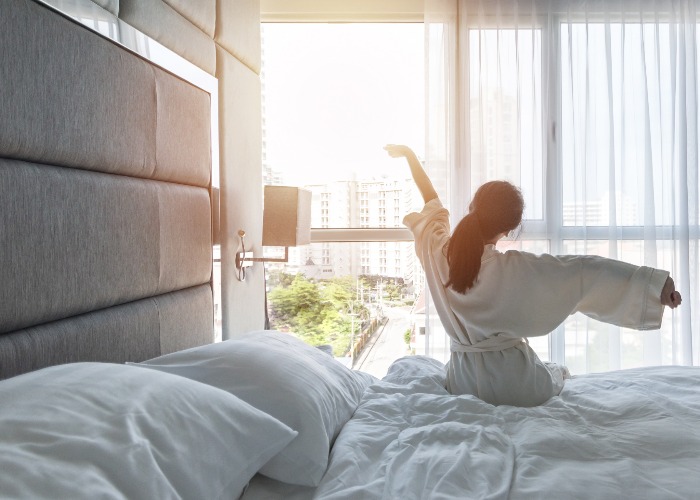
Say farewell to sleepless nights in your hotel room with our super sleeping hacks.
You’ve reached your destination and you take that first step into the hotel lobby: it’s exactly how you seen it on the website. Phew! As you’re welcomed by staff, handed your room key and head towards your room, suddenly a harrowing thought hits you: “What if I can’t sleep?”
Well, you wouldn’t be alone with this concern. Not only has research revealed that 75% of travellers say that poor sleep can ruin their holiday, but studies also show that many of us experience ‘First Night Effect’ (FNE). ‘First Night Effect’ – the difficulty of being able to fall asleep due to being in an unfamiliar environment (such as a hotel room) – can decrease your overall sleep time or prevent you from reaching REM: the deep sleep stage in which dreams occur.
But fear not. Martin Seeley, CEO and sleep expert at MattressNextDay, has presented new research that can assist with your bedtime burdens whether you’re in a hotel, a motel or even a Holiday Inn – assuring that you’re well-rested and raring to go.
Here are our 8 top tips on how to get a good night’s sleep in a hotel:
1. Location, location, location
We bet you've never considered the location of your hotel room could be a big factor in whether you’ll get a good night's sleep. Requesting a room that is located on a higher level can increase the likeliness of a cosy snooze, as they’re further away from disturbances of both street noise and the hotel bar and/or lobby. However, make sure your hotel doesn’t have a loud rooftop generator or a lively rooftop nightclub before requesting a higher-level.
You could also request a room which is situated in the middle of your floor’s hallway. These rooms will be further away from lifts and stairways and therefore the footfall of other guests that may keep you awake. They're usually further away from cleaning cupboards too, meaning you won’t be disturbed by the early morning cleaning-cart replenishment. Plus, it’s more likely that your room could be the last room on your floor to be cleaned – letting you have a well-deserved lie-in.
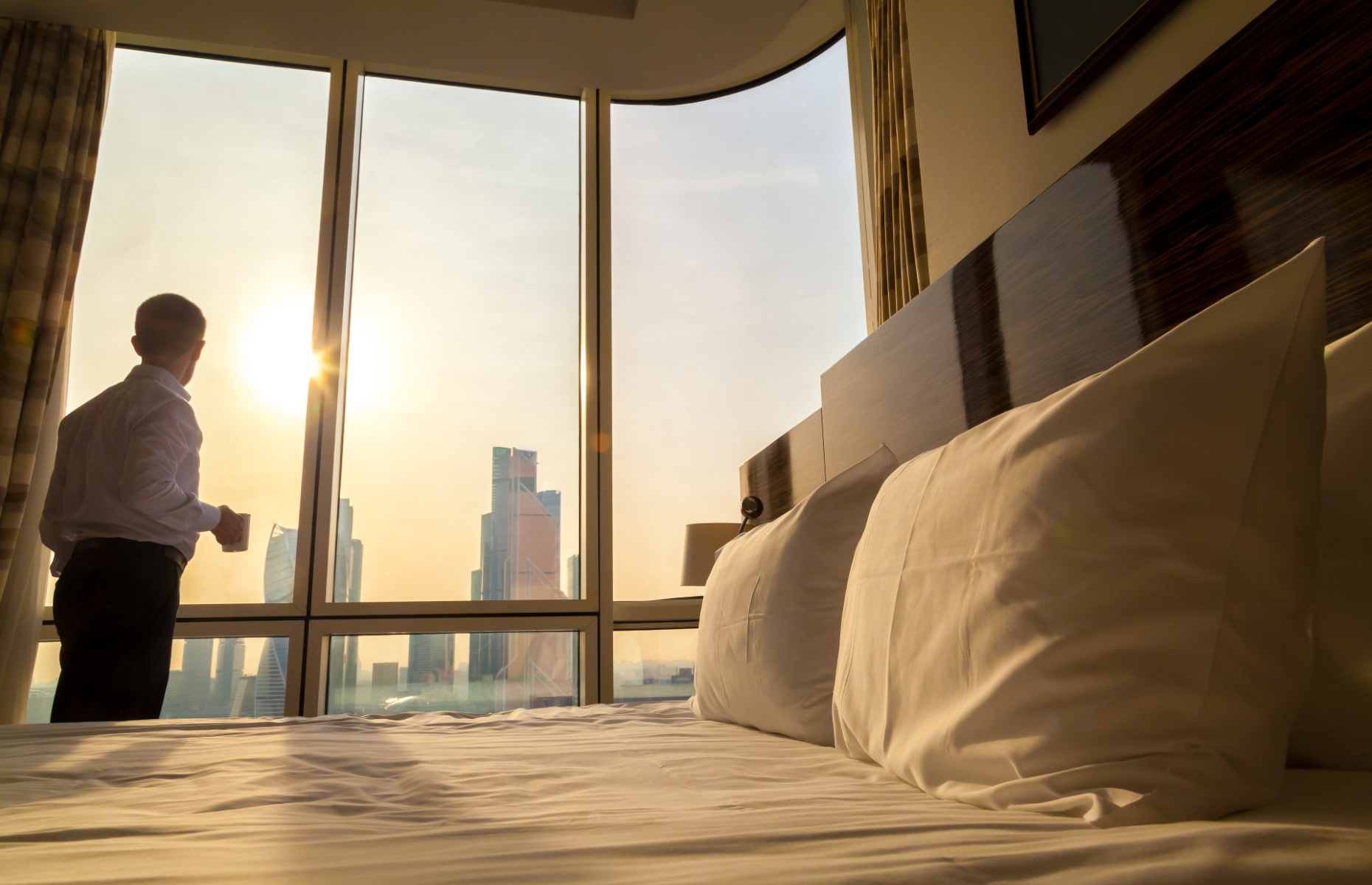 fizkes/Shutterstock
fizkes/Shutterstock
2. Don't be afraid to ask
If you don’t ask, you’ll never receive. If you sense your mattress might be too hard, request an extra comforter or a thick blanket to lie on. Some hotels even have special pillow menus for you to choose from, such as hypoallergenic pillows for those who have sensitive allergies. Around 31% of hotel visitors have requested to change their pillows because they weren’t to their preference, so feel free to speak up and get those extra Zzz.
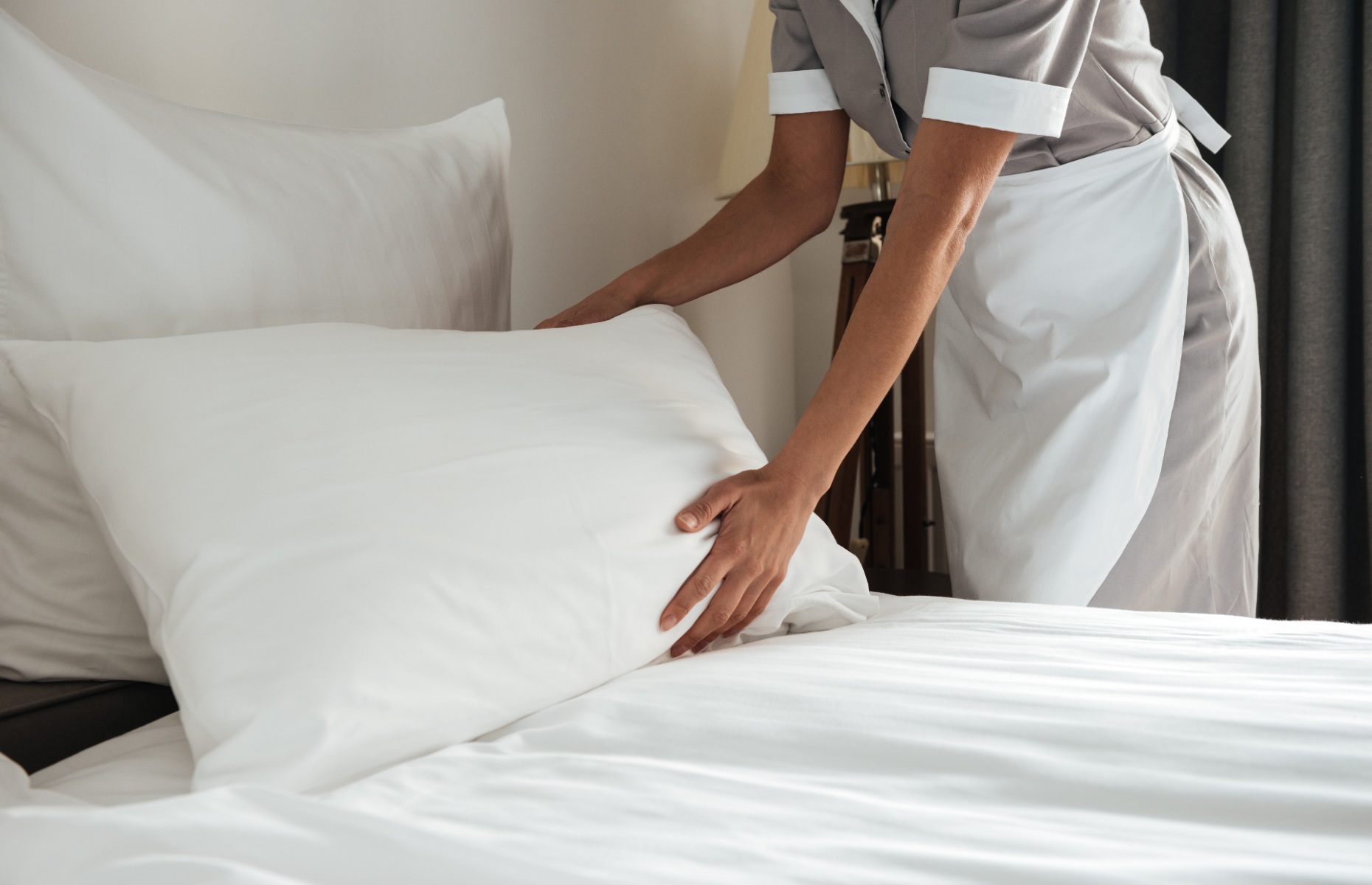 Dean Drobot/Shutterstock
Dean Drobot/Shutterstock
3. Stick to what you know
Everyone’s had that one unforgettable night’s sleep in a hotel where you wake up feeling bright and refreshed for the day, and this could be to do with the hotel using specific products – such as mattresses, fresh linens and cleaning supplies. Chain and branded hotels commonly research into and invest in one kind of mattress for all their properties.
So, if you’ve stayed at a Hilton or a Radisson and had a particularly fantastic night’s sleep, then you should stick to that brand.
4. Bring some home comforts
You can’t beat the familiarity of sleeping in your own bed, but you can’t exactly pack your bedroom into your hand luggage. Therefore, with 59% of British travellers admitting they get a better night’s sleep at home, why not bring a bit of home to your hotel. Bringing pillowcases or a favourite throw can add a personal touch to your room. Also, packing lightweight cotton pyjamas, your usual bedroom linen spray or dabbing essential oils (such as lavender) onto your wrists can all assist with a cool slumber in a familiar atmosphere.
If travelling with children, it goes without saying that they should bring along their favourite teddy bear. And pets? Simply bring a used piece of your clothing for them to sleep with, as they will recognise your scent and settle better.
READ MORE: Dog-friendly travel tips
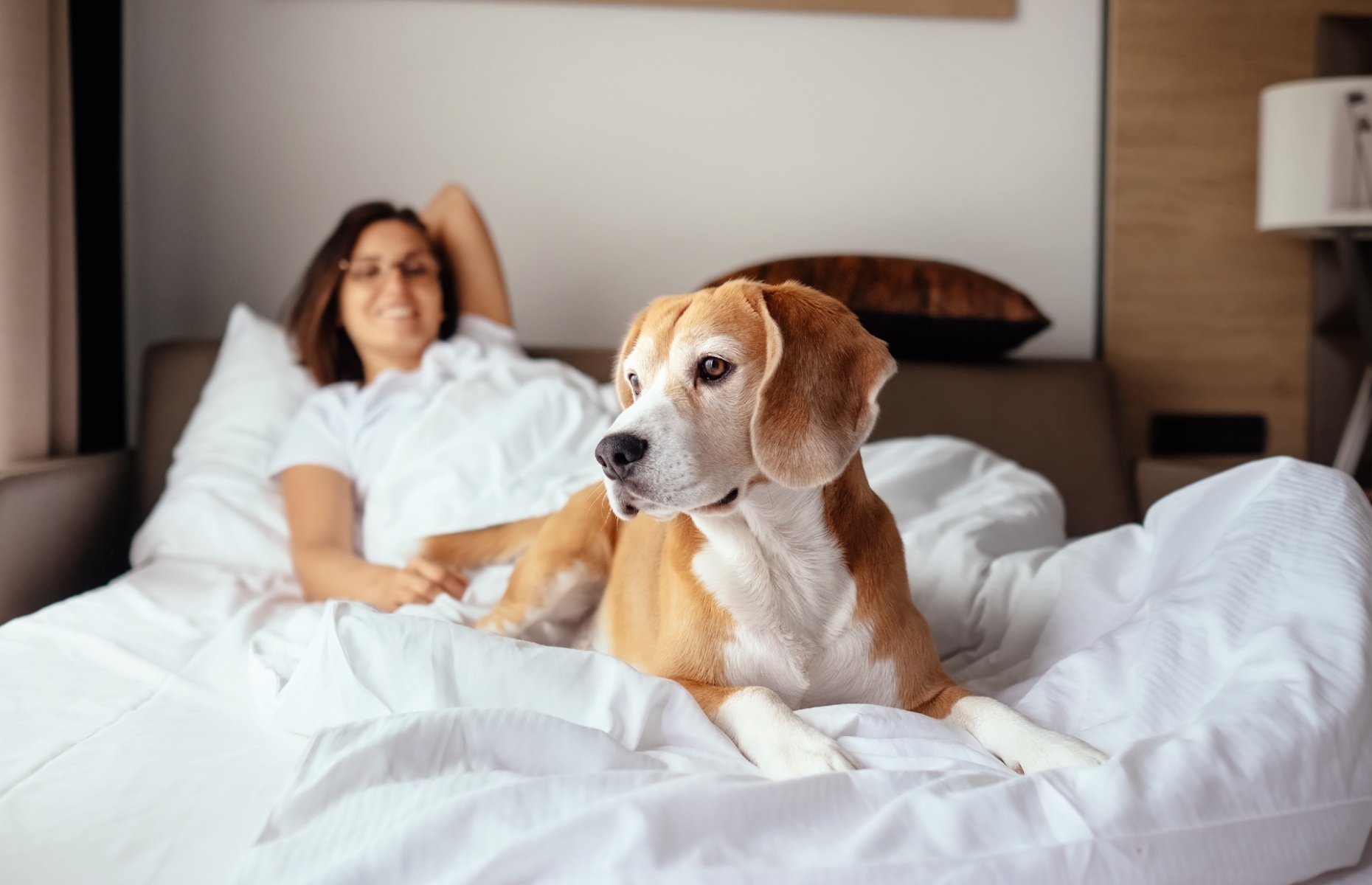 Soloviova Liudmyla/Shutterstock
Soloviova Liudmyla/Shutterstock
5. Routine is key
Whether your journey has taken you to the other side of the world or you’re just holidaying down the road, as soon as you set eyes on those fresh, clean hotel bed sheets you'll no doubt fancy a snooze. But try to resist the urge. Studies have shown that your circadian rhythm – or your body clock – relies on routine. You’re more likely to get a good night’s sleep if you stick to your regular sleeping schedule – the same as if you were at home. This is especially important to ward off jet lag, if you can manage to.
If you arrive at your hotel during the daytime, it’s recommended that you go outside and increase your exposure to natural light, as well as remain active to stay awake. When you finally settle down for bed, decrease your exposure to light once again and try to nod off.
READ MORE: Heading somewhere far-flung soon? Read our tips on how to cope with long haul flights
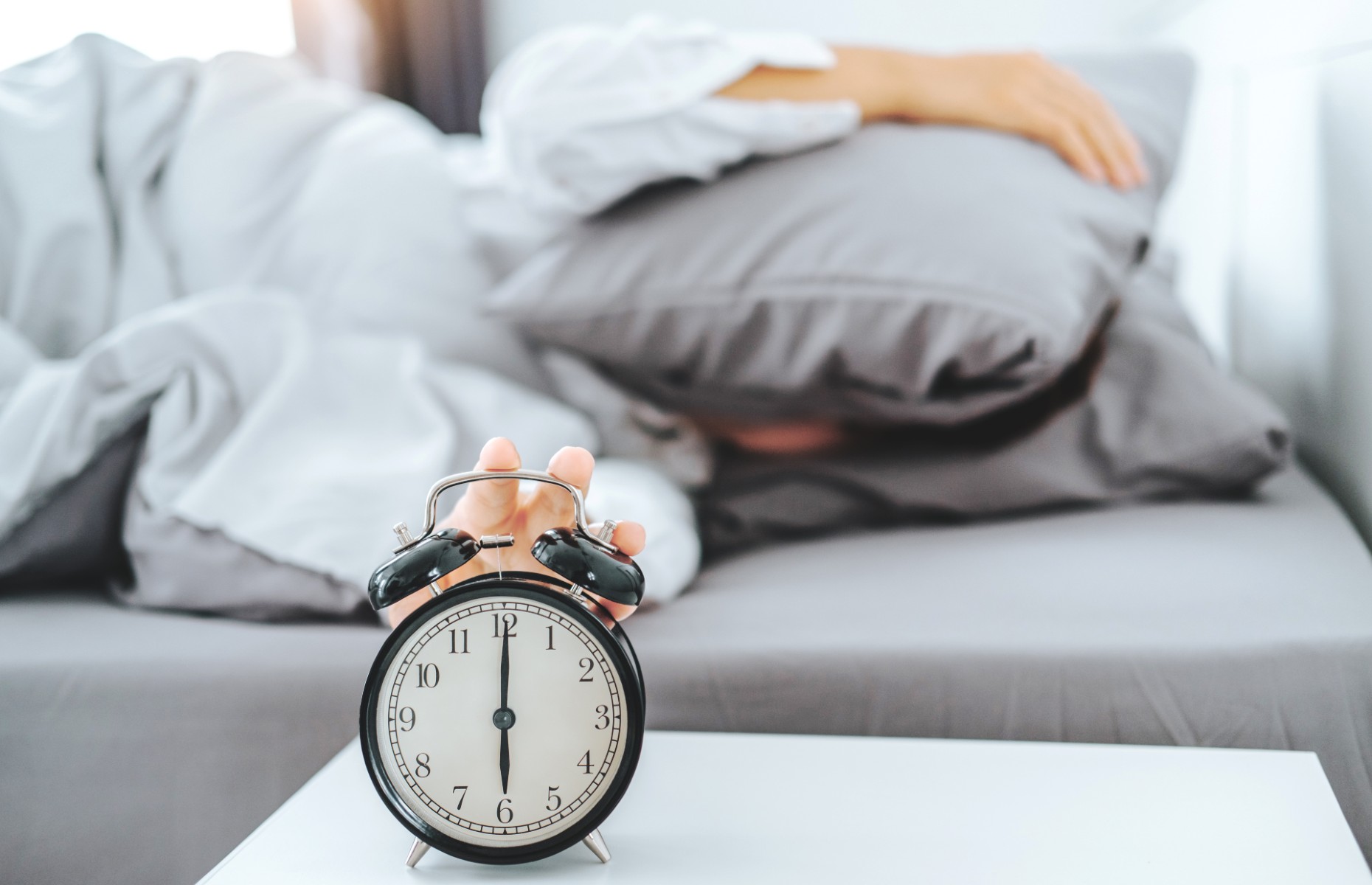 Joyseulay/Shutterstock
Joyseulay/Shutterstock
6. Transform your room
Creating the perfect ambience for your sleeping environment can be tricky when you’re away from home. Start by setting the room thermostat to between 16-19°C (60-70°F) – the desired temperature for a comfortable stay – if it isn't already.
A quiet, dark room can calm the brain, so blackout curtains are another essential feature for any restful night. However, if your room isn’t lucky enough to contain this luxury, bulldog clips are an affordable way to clip your curtains together and get the job done.
Also, white noise machines could be provided or rented by your hotel on request, creating a sense of serenity for your snooze. If you’re on a budget, earplugs block out the outside world just as effectively.
You can also try having a warm bubble bath (if your room has one), and read a book or listen to music to prep you for that all-important first night's sleep.
READ MORE: What the world's biggest hotel chains used to look like
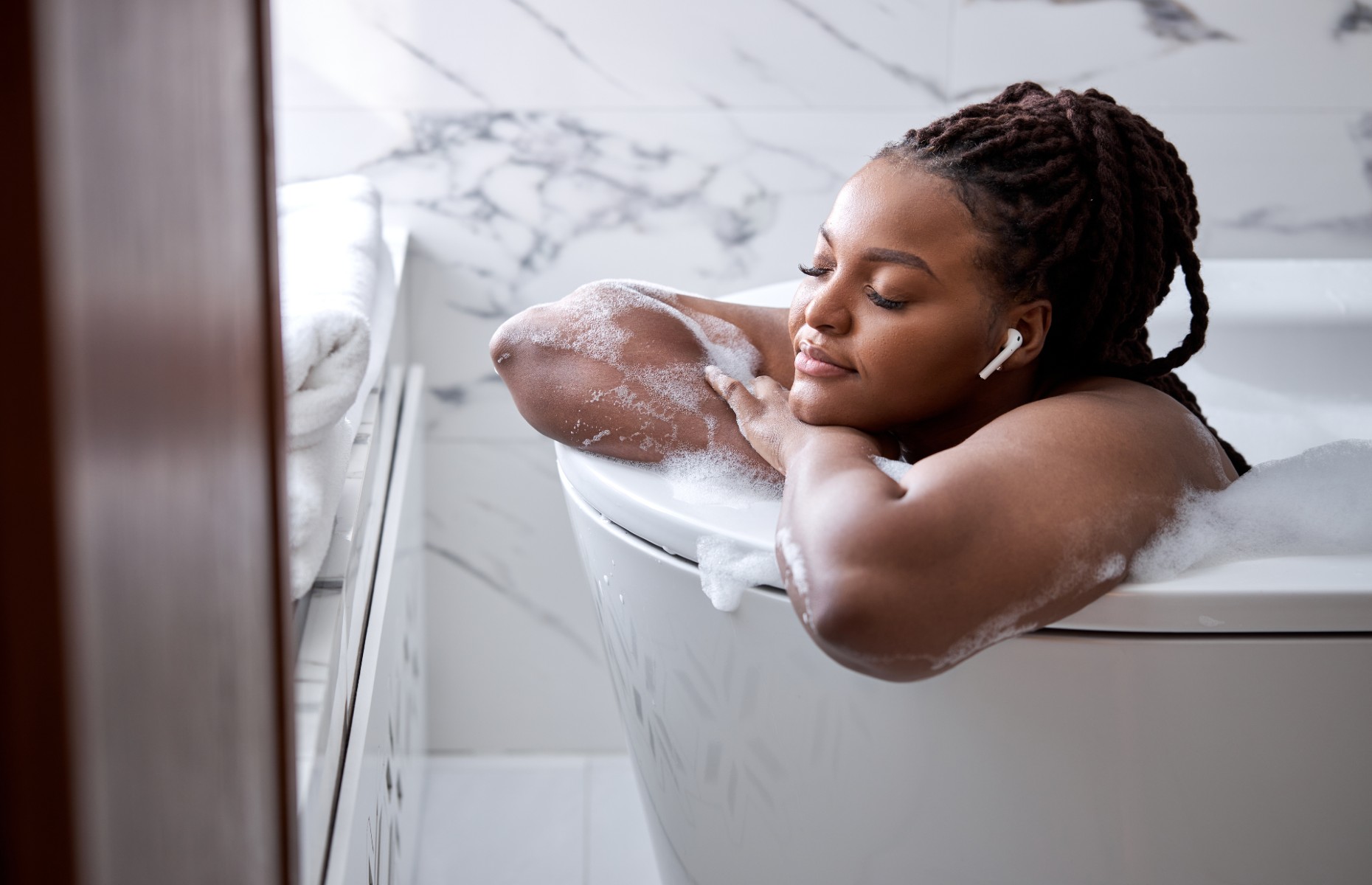 Roman Chazov/Shutterstock
Roman Chazov/Shutterstock
7. Stay out of the light
Put down your phone, switch off the TV and turn off the bedside lamp. Though your gadgets may give you a sense of comfort when alone, they’re actually sleep-blocking you. This is due to your body’s melatonin: a natural hormone which is controlled by light and initiates sleep. When exposed to light, melatonin production is lower and allows you to stay awake and vigilant during the daytime.
When you’re in a cosy, dimmed room with less light exposure, melatonin is released into your body and causes us to feel calm and ready for bed. It’s recommended that electronic screens should be avoided around two-three hours before you need to sleep. However, if you simply cannot turn off your phone…
8. … make technology work for you
Pressing the off button on your phone might not be an option for you – maybe you’re expecting a work email, awaiting news from family or you just have to know that final football score. So, why not take advantage of your need for the feed and download one of the many sleep-assistance apps that can help you drift off with ease.
Would you benefit from some soothing sounds? Sleepa offers 32 sounds from four different audio categories, plus white, brown and pink noise frequencies. If you need something more organic, Relax Melodies: Sleep Sounds provides guided exercises with a pillow that are approved by health and sleep professionals.
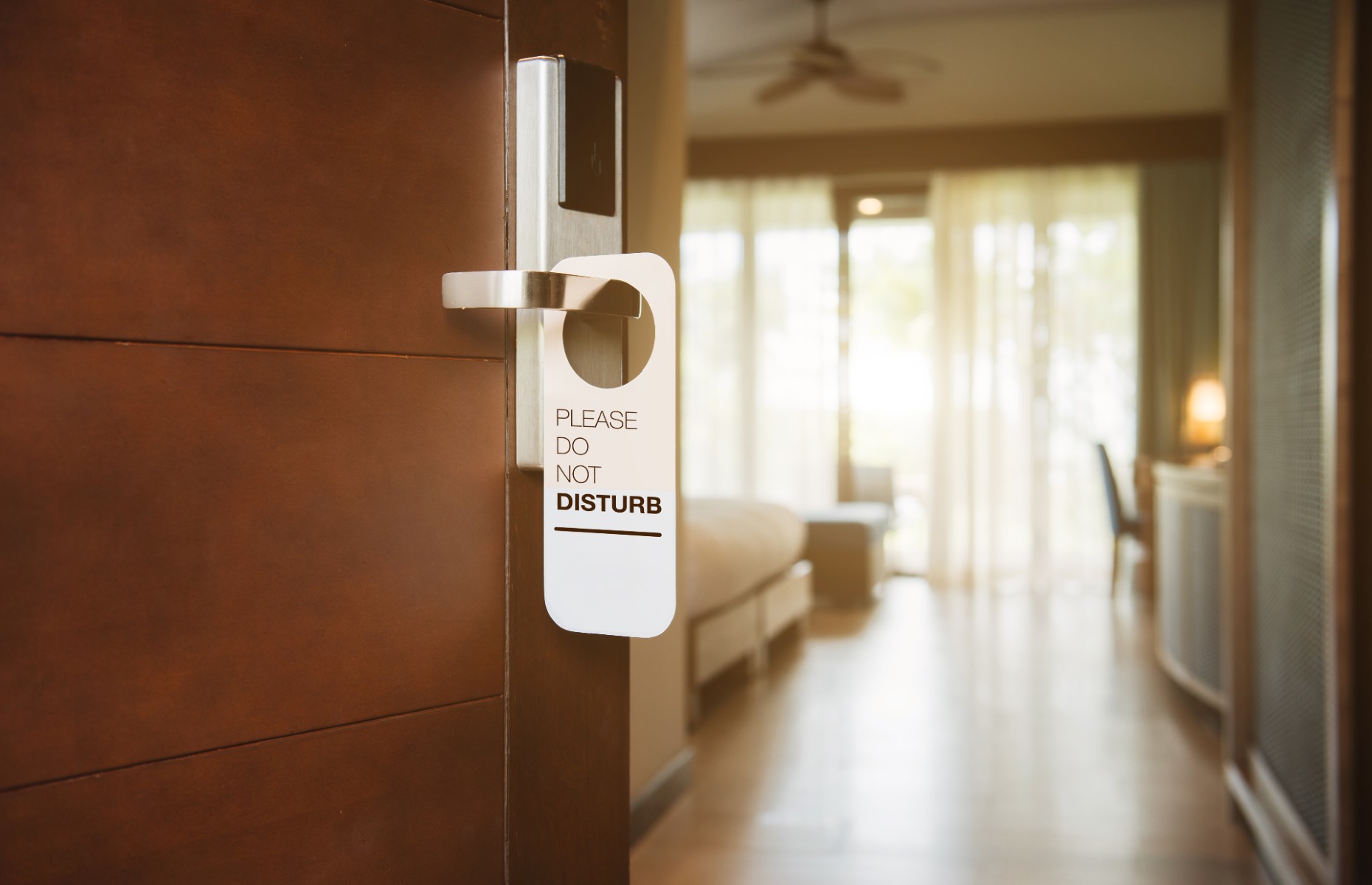 Makistock/Shutterstock
Makistock/Shutterstock
Maybe you can’t fight the temptation of social media? Apps such as AppBlock temporarily shut off access to distracting applications and can be customised to block specific apps and notifications during the hours that you should be sleeping – allowing you to still receive important information while you get that vital shut-eye.
READ MORE: 15 holiday packing tips for every type of trip
Lead image: Chinnapong/Shutterstock
Comments
Be the first to comment
Do you want to comment on this article? You need to be signed in for this feature